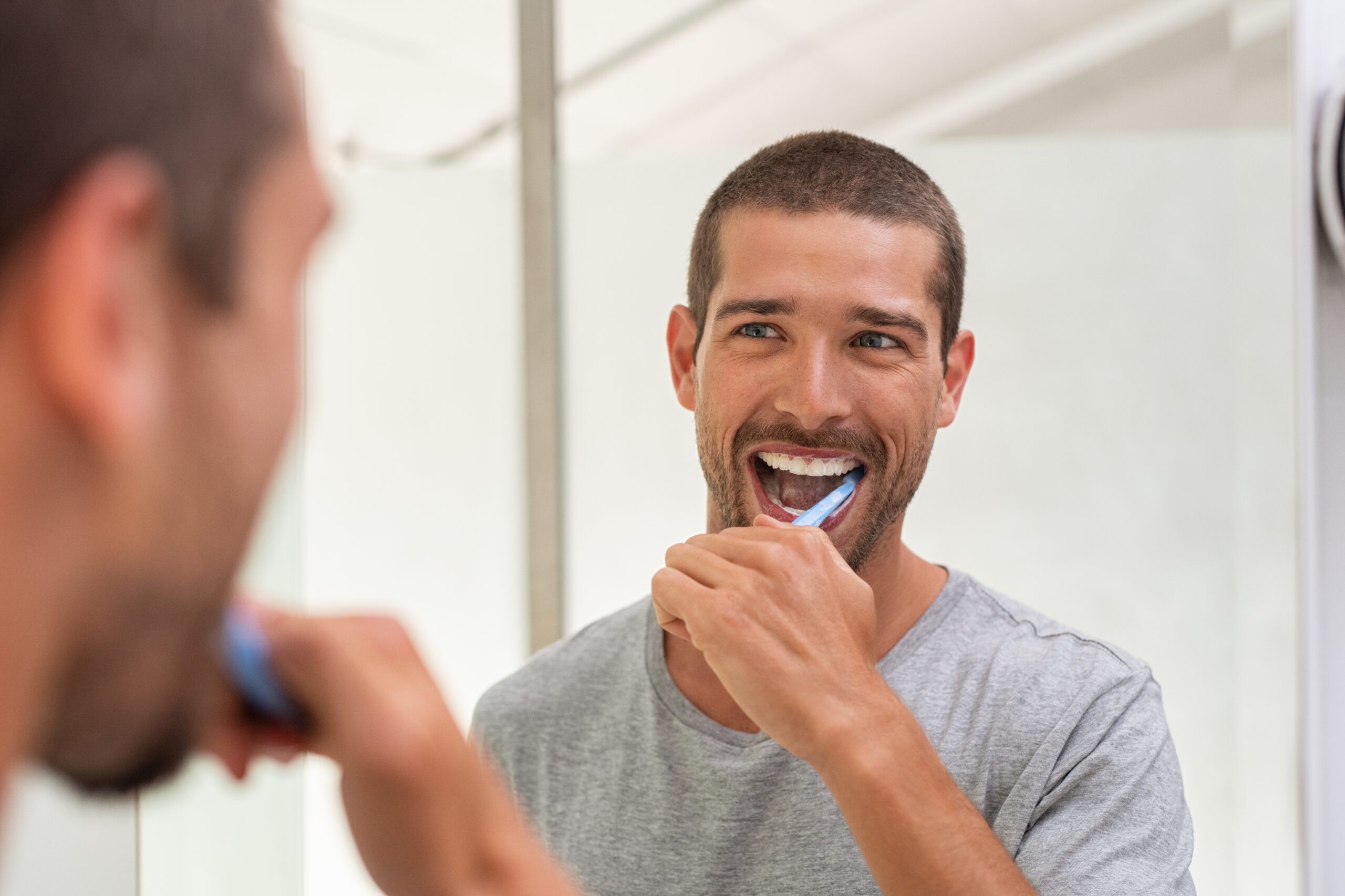As Australia’s local Dentist, Pacific Smiles Dental has over 110 centres to allow convenient access to the dental services you need.
 Published on October 28, 2022.
Last reviewed on August 8, 2023
by Pacific Smiles Dental.
Published on October 28, 2022.
Last reviewed on August 8, 2023
by Pacific Smiles Dental.
Inhaling the vapour of electronic, or ‘e-cigarettes’, is a relatively new practice and research into its effects is still emerging. Much of the popularity around vaping is generated by manufacturers, who claim that vaping is ‘healthier’, ‘more natural’ and less addictive than smoking cigarettes. These messages have influenced many users who believe that given a choice, vaping is less harmful than smoking cigarettes; however, this is not the case.
What is vaping?
Vaping works by using heat to transform liquid nicotine into vapour, which is then inhaled. Although the ‘smoke’ coming from an e-cigarette can look like a gentle type of steam, it’s really a form of aerosol.
What are the oral health risks of vaping?
Early findings have confirmed that nicotine, even when it’s vaped, restricts blood flow to the gums and throughout the body’s tissues and organs. In addition, the fluids included in e-cigarettes, which include benzene, formaldehyde, propylene glycol and other chemicals, further increase the risk of developing general health issues, including oral health conditions.
The tissues and structures in the mouth all rely on each other to work effectively. And although the mouth is relatively small in comparison with other body structures, its size is not an indicator of its importance.
Vaping can cause:
- Decreased saliva production – making the vaper more prone to developing cavities.
- Mouth ulcers and bad breath.
- An increased rate of cavities.
- Unhealthy, inflamed gums with reduced blood flow.
- Slower healing after tooth removal, gum and oral surgery.
- An increased risk of mouth and other cancers.
Isn’t vaping better than smoking?
Although vaping can be marketed as a better or ‘healthier’ alternative, the truth is that vaping nicotine comes with its own health risks, none of which are preferable to those brought on by smoking cigarettes. Dentists are reporting an increase in seeing patients with dry mouth, bad breath, periodontal disease and mouth ulcers, especially in younger generations who are within the highest group of e-cigarette users. These symptoms are all ‘red flags’ for the development of tooth and bone loss.
E-cigarettes also increase the temperature in the mouth, creating a form of stress in the communities of good bacteria so they’re no longer working protectively. This means fundamental changes occurs in the user’s oral microbiome – the range of good bacteria and microbes which live in the mouth. Another common experience of vapers is a temporary loss of taste, also known as ‘vape tongue’.
What to do if you are vaping
Be aware of your oral health and visit your dentist every 6 months to have your mouth and teeth checked. Other strategies which can help are to avoid having a dry mouth and drinking plenty of water. Chewing sugar free gum can help to stimulate saliva flow.
Book an appointment today and speak with your dentist about the effects of vaping on your dental health.





